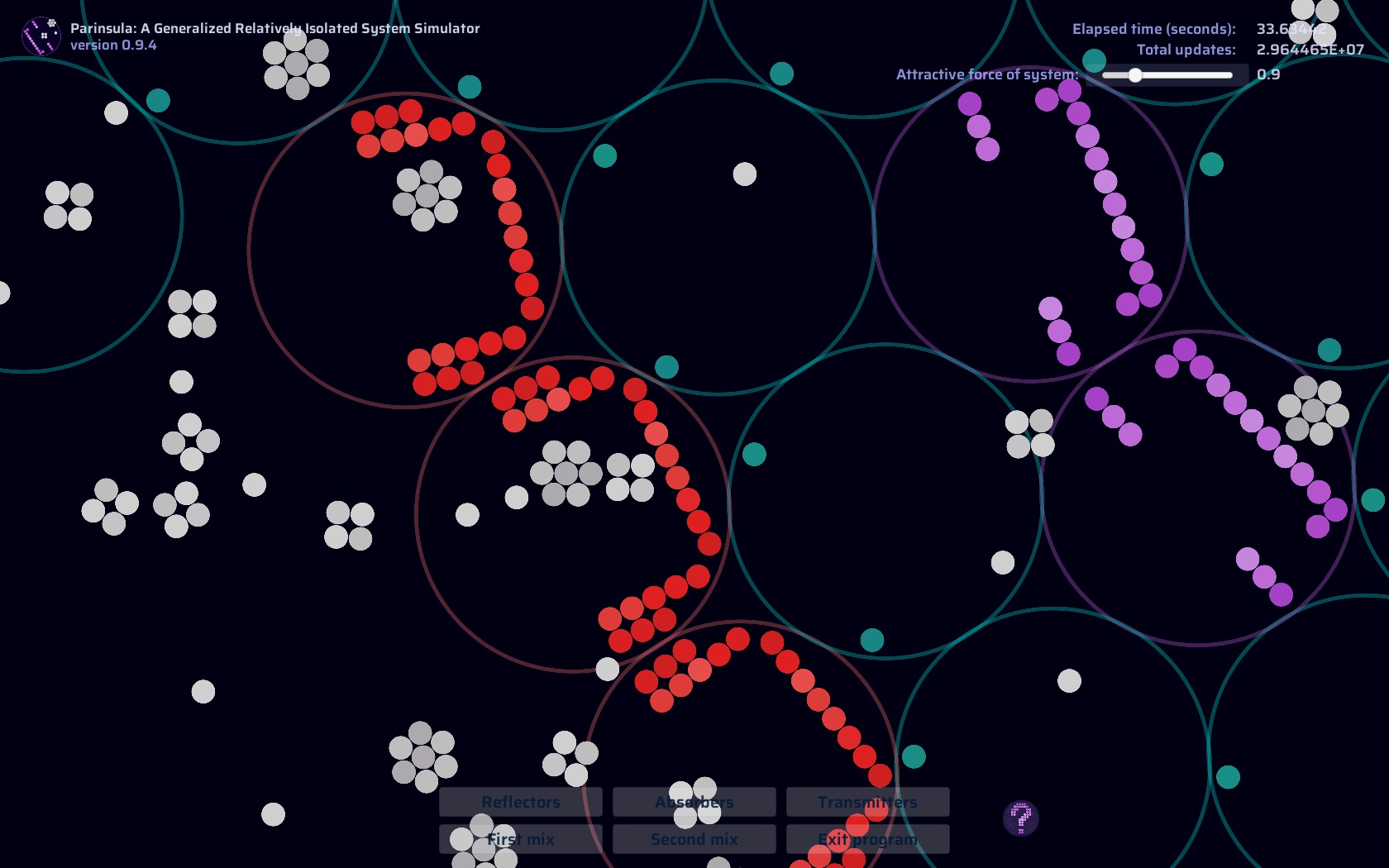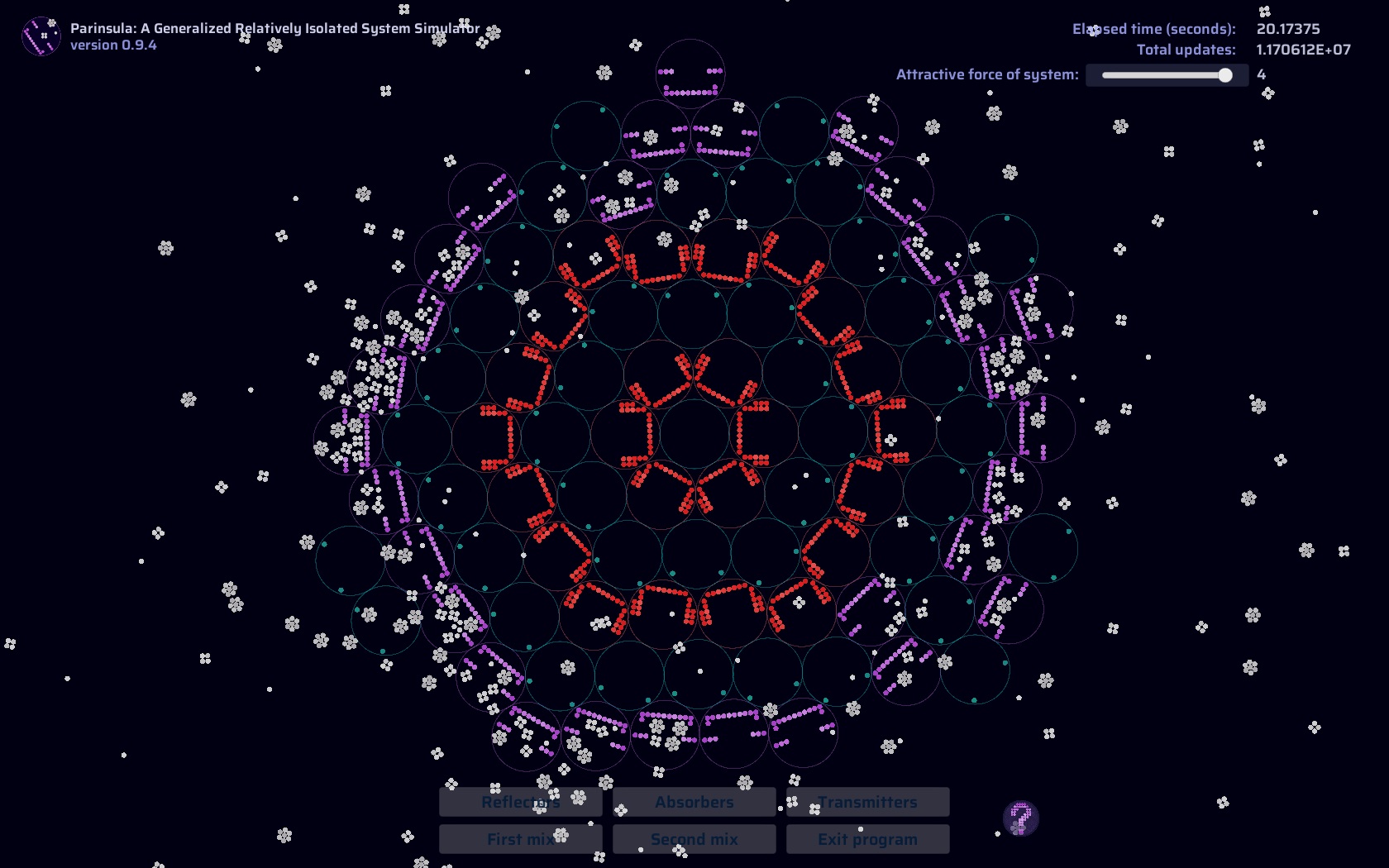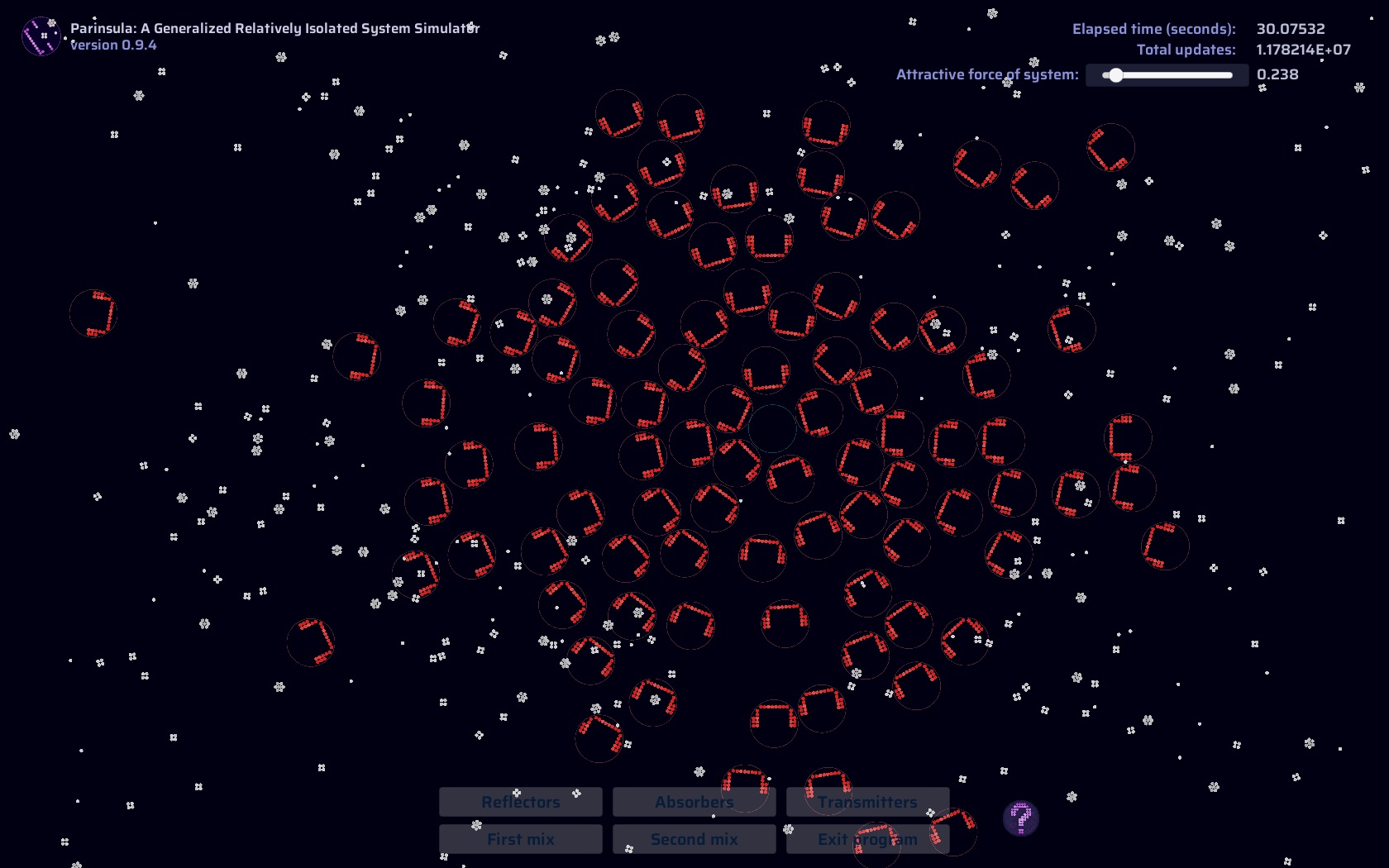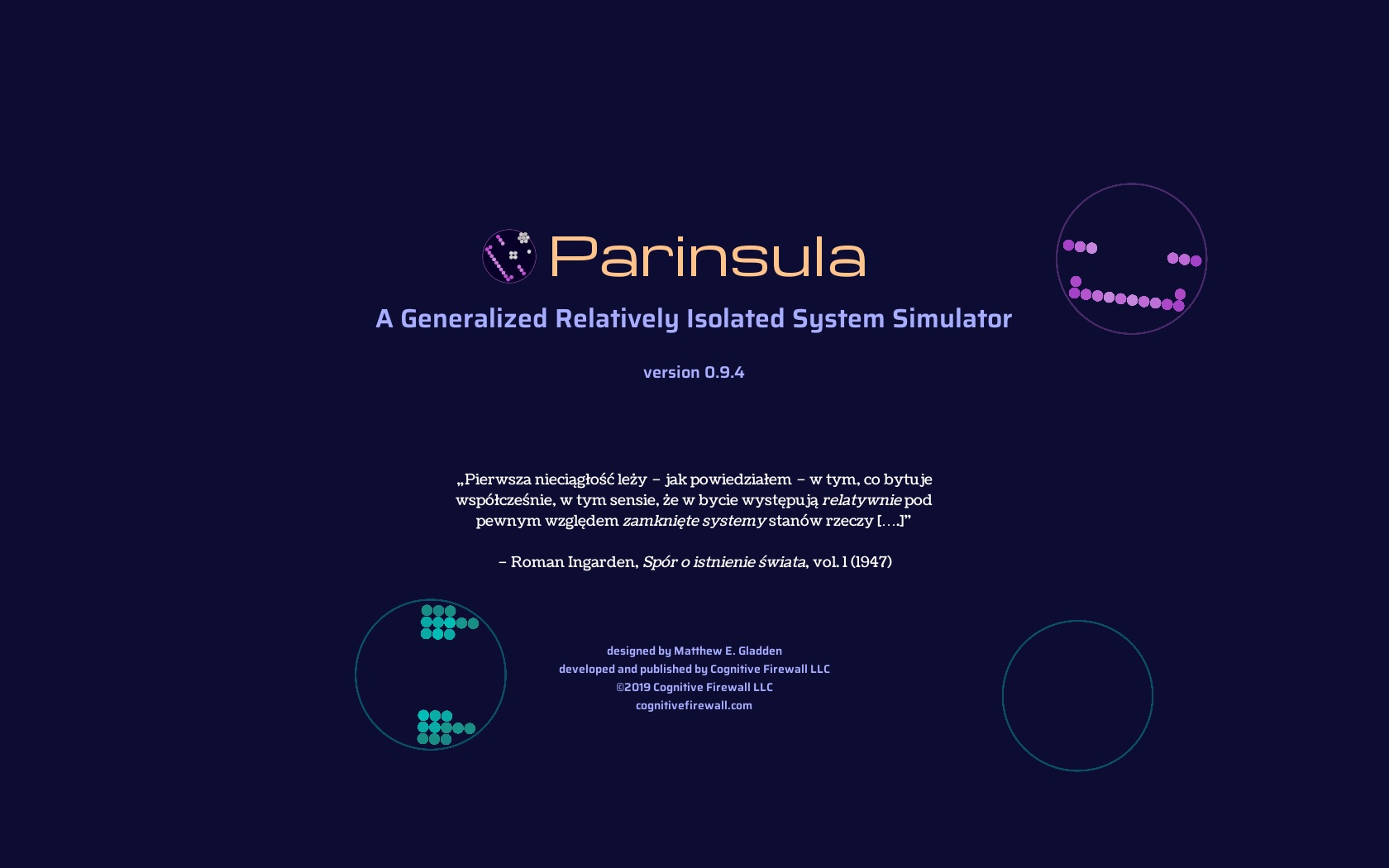Parinsula: A Generalized Relatively Isolated System Simulator is a computer program designed to illustrate elements of the systems theory developed by Polish philosopher Roman Ingarden, which has applications in such diverse fields as theoretical biology, architecture, and computer game design. In particular, the software provides a means of simulating and visualizing the behavior of several simple, generic types of relatively isolated systems.
The nature of such a relatively isolated system is determined largely by the quantity and quality of the semipermeable boundaries or membranes that it possesses and the resulting partially sheltered interior spaces that they create within the system. Such boundaries regulate the passage of objects and causal influences from the external environment into the system’s interior and from the system’s interior into the external environment.
In the real world, there are myriad types of partially isolating structures, mechanisms, or behaviors that a given system might include and which (depending on the nature of the system) might operate at physical, cognitive, social, or other levels. The simplified models utilized in this simulator include three generic types of components that a system might possess (“Reflectors,” “Absorbers,” and “Transmitters”), which give rise to semipermeable system boundaries possessing varying characteristics. The simulator provides models of five different relatively isolated systems. The first three illustrate the basic behaviors of Reflectors, Absorbers, and Transmitters, respectively, while the other two present systems that include a mix of all three types of components.
The simulator draws its theoretical basis from works including Ingarden’s Spór o istnienie świata, volumes I (1947) and II (1948), Über die Verantwortung: Ihre ontischen Fundamente (1970), and Über die kausale Struktur der realen Welt: Der Streit um die Existenz der Welt III (1974).





